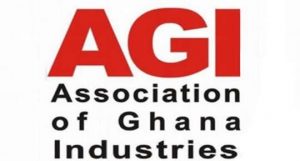The cost of oil surged on Wednesday, as traders snapped up non-Russian oil, increasing the chance of further price rises at UK forecourts.
Brent crude – the global benchmark for oil prices – passed $113 a barrel, its highest level since June 2014.
Traders are struggling to sell Russian oil, even at a discount, because of the new difficulties in shipping and payments amid its invasion of Ukraine.
Gas prices also doubled, which could feed through to energy bills.
Almost 70% of Russian crude oil exports do not have a buyer according to UK-based research consultancy, Energy Aspects.
On Tuesday, oil trader Trafigura offered a cargo load of Russian crude oil at a record discount of $18.60 per barrel below the market rate for Brent, but could not find a buyer willing to take the risk.
Amrita Sen, its founding partner told the BBC World Service that buyers are concerned that they could run afoul of Western sanctions and “lawyers are poring through the language” of the new rules.
The RAC said if the higher oil price is sustained, the cost of filling up a car in the UK will increase with it.
“The sudden $10 jump in the oil price is likely to take the average price of petrol towards 155p a litre and diesel to 160p, particularly as it’s looking like this price isn’t just a market blip caused by the US and allies deciding to dip into the strategic oil reserve.
“If oil does stay at this level, the journey to an average unleaded price of 155p may be far too quick.” said RAC fuel spokesperson Simon Williams.
The average price of petrol across UK forecourts on Tuesday was 151.6p per litre, according to the RAC.
Both Brent crude and WTI crude are trading more than 8% higher today, boosted in part by demand for
Energy price cap
Household gas and electricity bills are set to rise after the annual energy price cap increases to £1,971 in April, but the rise in wholesale prices amid the war in Ukraine may mean the price cap ratchets up to £3,000 by the end of the year, according to one energy analyst.
“Wholesale prices make up between 40-50% of household bills,” said independent energy analyst David Cox. “If these high prices stay around 400p per therm we may see the price cap head closer to £3,000 per year, which is terrifying.”
Higher oil and commodity prices helped the London stock market to buck the downward trend in global markets, with commodity-linked company share prices surging as the Ukraine crisis fanned fears about supply shortages.
The FTSE 100 rose 0.6%, boosted by Shell and BP shares, up 4.7% and 4.2%, respectively.
On Wall Street, the Dow Jones, Nasdaq and S&P 500 indexes all opened trading higher, up by between 0.7% and 0.9% respectively.
Meanwhile, the price of US oil – West Texas Intermediate crude – rose to almost $109.78 a barrel.







